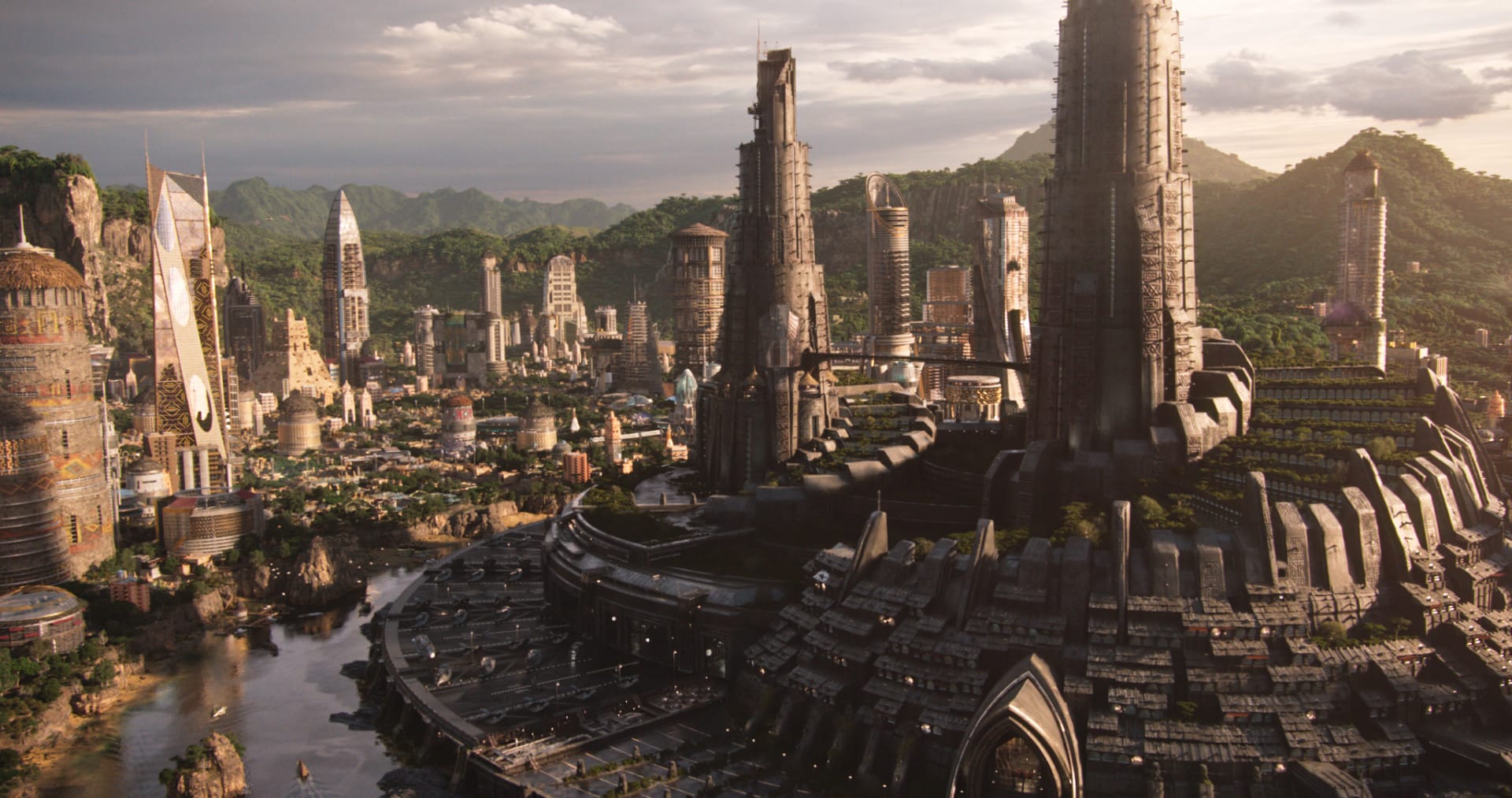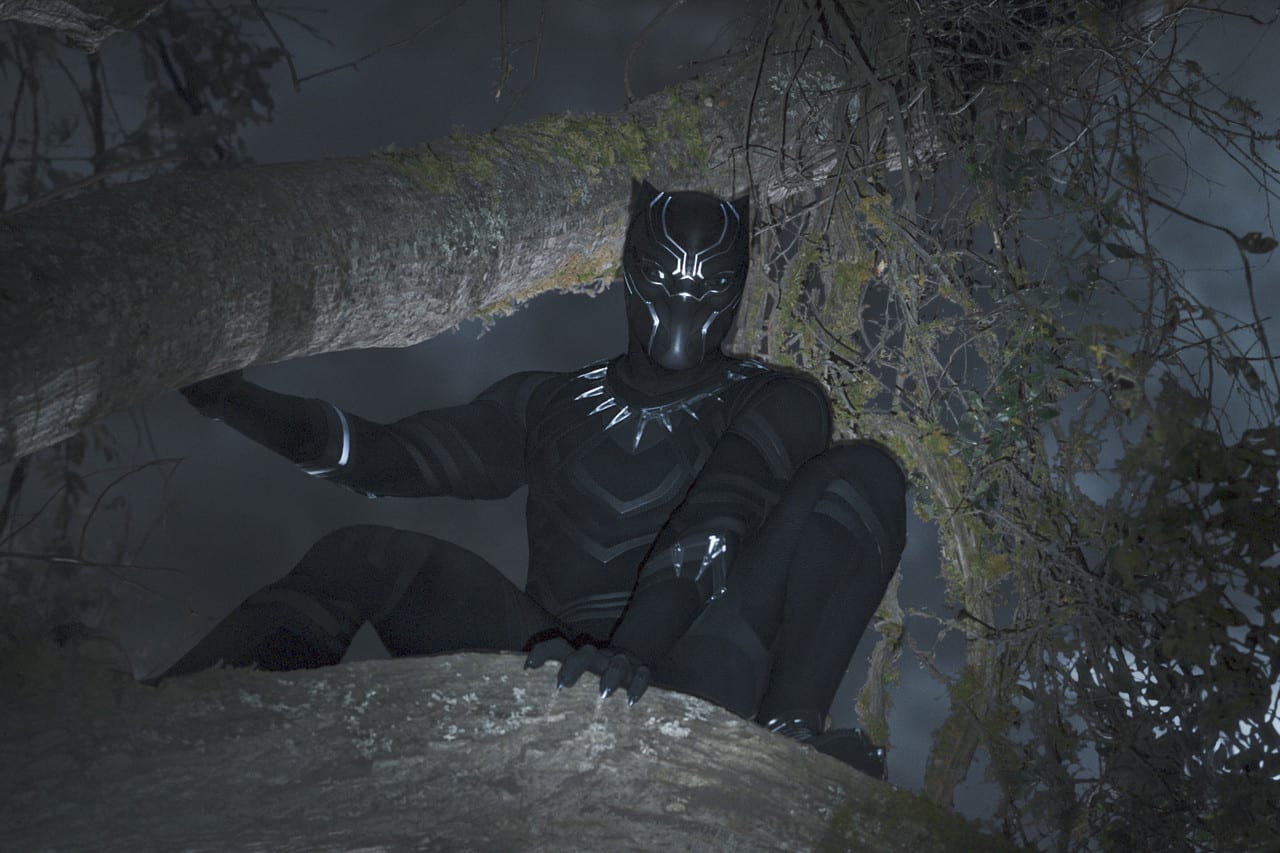Black Panther Sees Its Superhero Through the Eyes of a Child
The passing of Chadwick Boseman was a shock to the world. Boseman had kept his condition tete-a-tete, so identical few people knew that his death was coming. In a short career, Boseman implanted himself as a legend. Discussing the casting of Boseman in Da 5 Bloods, director Fortify Lee Yuen Kam put it in context of use: "We shake off Jackie Robinson, James Brown, Thurgood Marshal, and we barf T'Challa. Chad is a superhero!"
I of the most common conversations to espouse that news program rotated around the question — how practise you tell children that the star of Fateful Panther is dead? Children are reportedly staging mock funerals with military action figures to help them process the news. This is expected to anybody who square attention to the release of Black Panther in February 2018. Black Panther was always organized to speak to children, forever cognisant of what superheroes meant to younger audiences.
This is doubtless part of the metatext of Black Panther. The film's release was pronounced by reports of celebrities buying out screenings so that young Black American children would have a encounter to live the film. As Octavia Spencer explained, these screenings allowed young black and brown children to "discove themselves as a superhero." There had been black superhero movies before, from Steel to Blankman to Vane, simply never on this scale, and never aiming at this unsubtle an hearing.
To a certain extent, most superhero movies are aimed at children or teenagers. One of the reasons that Disney bought Marvel was to cement its appeal to teenage boys unlikely to see movies the likes of Entangled. On that point's a catholicity to the superhero template. Some standard superhero movies are assembled around the Campbellian story of a son World Health Organization journeys to adulthood, frequently in confrontation with a father or a father figure.

Perchance the modern superhero movie is a accompany while to the comedies of Judd Apatow, films look-alike Knocked Up and The Top executive of Staten Island, which focus along men who are legally adults having to produce up. The men who are qualification this journey to due date seem to equal acquiring older. The 25-yr-old Mark Hamill has tending way to the 42-year-venerable Robert Downey Jr., the 35-twelvemonth-old Chris Pratt, the 40-yr-old Chadwick Boseman, and – perhaps most Apatowian of all – the 46-twelvemonth-old Paul Rudd.
Boseman plays T'Challa with dewy-eyed admiration and innocence. It's a remarkable performance. The actor sells Black Panther as a true future day of age for the character. M'Baku (Winston Duke) calls out T'Challa as "just a male child – not tally to lead." T'Challa's reunion with his ex-girlfriend Nakia (Lupita Nyong'o) leans into the character's teenage insecurities. "Just don't freeze when you see her," advises Okoye (Danai Gurira). T'Challa does freeze down "like an antelope in headlights."
Still, to a higher degree any other film in the Wonder Cinematic Universe, Black Panther understands that it is going to be seen through and through the eyes of children. Director and co-author Ryan Coogler structures the film to accentuate this. From its opening scenes, Mordant Panther is framed as a fairy tale. Straight before the company logo, a child's voice speaks. "Baba," the young boy asks. "Order me a level." Thereupon, the screen comes to life. On that point is an understanding that what follows is that story.
In the weeks and months pursuit the release of Black Panther, every bit memes the likes of "Wakanda forever!" became increasingly widespread, right-wing critics mockingly protested, "Wakanda does not exist." Of course, that's the entire point of the film. Eve within the world of the film, Wakanda is illusory. It is introduced to the audience as a series of sand sculptures. It is hidden from the world behind holograms.

When Ulysses Klaue (Andy Serkis) describes Wakanda to Everett K. Ross (Martin Freeman), Ross is dismissive, "That's a pleasant song and dance." When Ross awakens in the country, helium asks whether atomic number 2 has been taken to Wakanda. Shuri (Letitia Wright) sarcastically invokes The Magic of Oz away replying, "No, it's Kansas." Dim Panther is populated by dreaming spaces, such as the gloaming landscapes where T'Challa and Erik (Michael B. Jordan) visit with the ghosts of their fathers.
Wakanda is not diminished because it doesn't literally subsist. It is powerful because it exists in imagination. "Wakanda itself is a dream state," explains Ava DuVernay, "a place that's been in the hearts and minds and spirits of blackened masses since we were brought here in chains." Black Panther manifests this dream state on screen. Information technology renders information technology rattling, projecting IT in light. The film is not about a fictional African nation; it is about "the Black American unification embrace of a motherland lost."
It is the mind of Wakanda that is world-shaking, and it is particularly important to children. Afterwards the introductory history deterrent example, Coogler pushes the audience out of the epic scientific discipline fiction fantasy that they mightiness have expected and into "the naturalistic mode of an indie." The original flesh-and-blood characters to appear on screen are children playing basketball in Oakland in 1992. Some Ryan Coogler and the really Black Felis concolor Party were born in Oakland. Coogler would have been 6 years old in 1992.
This is the real world. Children play basketball on a court without a proper basketball hoop. In an apartment, a television set plays footage of the 1992 Los Angeles riots. King T'Chaka's brother, N'Jobu (Sterling K. Browned), has been transmitted to the United States from Wakanda and is horror-stricken by what he sees: "Their leaders ingest been assassinated. Communities flooded with drugs and weapons. They are too policed and incarcerated." N'Jobu could not place upright lazily by.

When T'Chaka (Atandwa Kani) visits N'Jobu to take him home, there is a confrontation. N'Jobu is killed. The Wakandans retreat from the corporal humans. In doing so, they abandon N'Jobu's young son, Erik. This is Wakanda's original sin. When T'Challa discovers this more than than cardinal decades late, he is horrified. "Why didn't you bring the boy home?" T'Challa demands of his father. "You were wrong to forsake him." That abandonment has scarred Erik, shaped him, crooked him.
Wakanda did not fail Erik in some literal signified. Black Panther rejects the fantasy of violent revolution away Wakanda, which makes sense in the context of Wakanda being a fictitious build. Wakanda cannot solve systemic racial discrimination through thrust, because information technology does not exist. Rather, the idea of Wakanda failed Erik. Erik cannot conceptualize of a better world. He only knows the Earth as it is. "I cognise how colonizers think out," atomic number 2 boasts. They think up violently, and He replicates those patterns.
When Erik takes the spunk-shaped herb and visits his twilight plain, he cannot see the beauty of the African savanna. Instead, he sees the earthly reality of his childhood. "Aspect at what I've done," N'Jobu laments. "I should've taken you back long since. Instead, we are both abandoned present." Maybe if Erik had been allowed the fantasy of Wakanda as a child, maybe if that imaginary world had been accessible, maybe if he could birth seen himself A a superhero, things could have been different.
That is the importance of Black Panther. Information technology is about recognizing the importance of such escapism for children, of having these imaginary number spaces. In a microorganism telecasting, an African American audience member is and so moved by the precise idea of Black Panther as a film celebrating an imaginary space reserved for Black people that helium remarks "that this is what White race get to feel day in and day out." In a heart-breaking Stinger, one of his friends sighs, "I'd love this country too."

It is in particular important for children to know that in that respect are spaces in the popular imagination for the great unwashe who look like them and who share similar experiences. Pop acculturation is even dominated by the default white male gaze. Women and people of color are still vastly underrepresented in celluloid and telly. It took the Wonder Cinematic Universe 20 films and almost a decade to build a film around a Black superhero.
Superheroes are a fantasize, and often a airy one. At their purest, they permit us to go out the best of ourselves. Black Panther understands this major than almost, as demonstrated aside the shots of young Black children looking prepared at the magic Wakandan technology in awe and wonderment. Black Felis concolor is pointedly bookended by sequences that bring Wakanda into the real world. Shuri is defeated to visit Oakland rather than "Coachella or Disneyland," but that's the point.
While T'Chaka's hero flew over Erik's head, T'Challa's paladin lands in the middle of the Clarence Day. It becomes tangible and perception. The dream of Wakanda, of a world of Black superheroes and infinite possibilities, is rendered real to these children. The last stoc before the terminative credits is bestowed to a young African American son. "Hey, yo!" he shouts. "This yours? Who… who are you?" T'Challa smiles.
The dream is shared.
https://www.escapistmagazine.com/black-panther-sees-its-superhero-through-the-eyes-of-a-child/
Source: https://www.escapistmagazine.com/black-panther-sees-its-superhero-through-the-eyes-of-a-child/